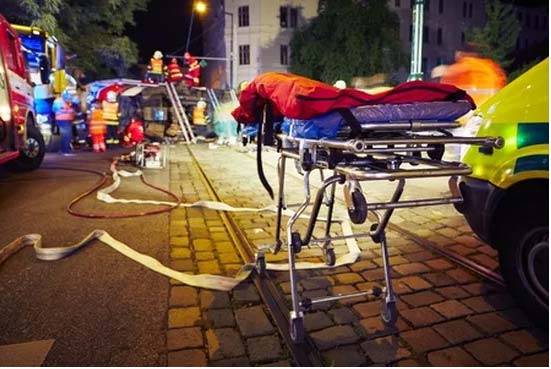I’ve spent time over the last two weeks with local fire departments. I’ve listened to their stories – the compelling and tragic stories about what they call the “dark underbelly” of our community.
These men do things not many of us have the desire or courage to do.
They see things that are not meant to be seen – the atrocities that people inflict upon one another, most especially children. They put themselves on the front lines voluntarily. In a critical time, when you see a Firefighter or Paramedic, you breathe a sigh of relief, because you know they’ll be able to DO something. They’re not afraid of getting in the thick of the worst things – from restraining someone in a diabetic delirium in order to deliver them lifesaving medication – to crawling over a dashboard to maintain an airway of someone pinned in their vehicle.
This is not for the faint of heart. They pull burned children out of fires, sit with wailing mothers, do CPR on infants who have been beaten to near death, and look for the bodies that have been ejected from a car wreck. It’s more than just walking head on into a fire – although let’s not underestimate the survival instinct one must override in order to do that.
These things we KNOW…. but we don’t like to think about because it’s the stuff made of horror movies, and the stuff we don’t want to think about that happens in our world. They willingly sacrifice their health, their bodies to do this work. It is not a job, it’s a calling. And they don’t ask for much: a solid chunk of sleep, some decent gear, enough money to support their families.
To be in a room with these men, one sees their sincerity, their generosity and their embodiment of what it means to be in service.
But there’s also something else I have seen.
The stoicism.
What I refer to as “the trauma glaze”
The lack of emotion – despite knowing how big their hearts are.
The reluctance to admit anything that might be perceived as weakness.
See, they don’t ask for help.
And this fact alone is taking a toll.
Firefighter divorce rates have been estimated up to 3 times that of the general population.
Suicide rates for first responders are 10 times higher than the general population.
A recent study stated that 85% of first responders have experienced mental health symptoms – although almost 70% reported that mental health services are seldom or never utilized. The majority report that their supervisors will look at them negatively if they admit to having any mental health needs or that their colleagues will perceive them as weak if they bring concerns up. But ask any one firefighter individually, and they will tell you their personal stories of watching their brothers suffer, the funerals they’ve attended of their colleagues, or of how they know they are holding a lot of stuff in.
But why?
Why would be label these valiant men as anything less than if they spoke of their stress? Why would we think less of them if their bodies, minds and spirits were affected by the most horrifying parts of humanity? Isn’t that what makes them even more admirable and more deserving of our care? That they actually FEEL for the people they serve and are not cold-hearted robots just administering a procedure? Their reactions to the stress that being in this role day after day takes speaks deeply to their empathy and their own humanity. This is the gift they bring to the world.
We must support and create a culture in which it is normal and acceptable for them to share their struggles. This is not an individual problem. This is a cultural problem. And it’s killing them.
The suicides are a direct result of a culture that expects them to “tough it out” and not ask for help. The unspoken code of masculinity – where men don’t cry, show any emotion, or admit any sign of perceived “weakness”, doubles down the suffering.
In my work, I can tell you exactly what the result of the perpetuation of this culture and NOT asking for help does.
People who don’t ask for help:
Lose RELATIONSHIPS, marriages and families.
Their relationships with their KIDS suffer significantly
Lose their SELF-CONFIDENCE
Lose their physical HEALTH
Lose their ability to ENJOY LIFE
Eventually lose doing the work they love and their ability to SERVE THEIR CALLING
In order to be a leader, in whatever way one leads – as a father, husband, or on the job, – one HAS to care for oneself and not stuff it in order to “get back on the rig”. Helping others at the expense of oneself is honorable, but unrealistic.
Asking for help takes COURAGE. And by definition, courage is doing something that is SCARY.
This is not about one man’s weakness, faults, or not being “man enough”.
It’s about the TREMENDOUS POWER a man has to:
•be a better husband
•be a better father
•be a better helper and
•contribute more to the world
We always have a choice.


